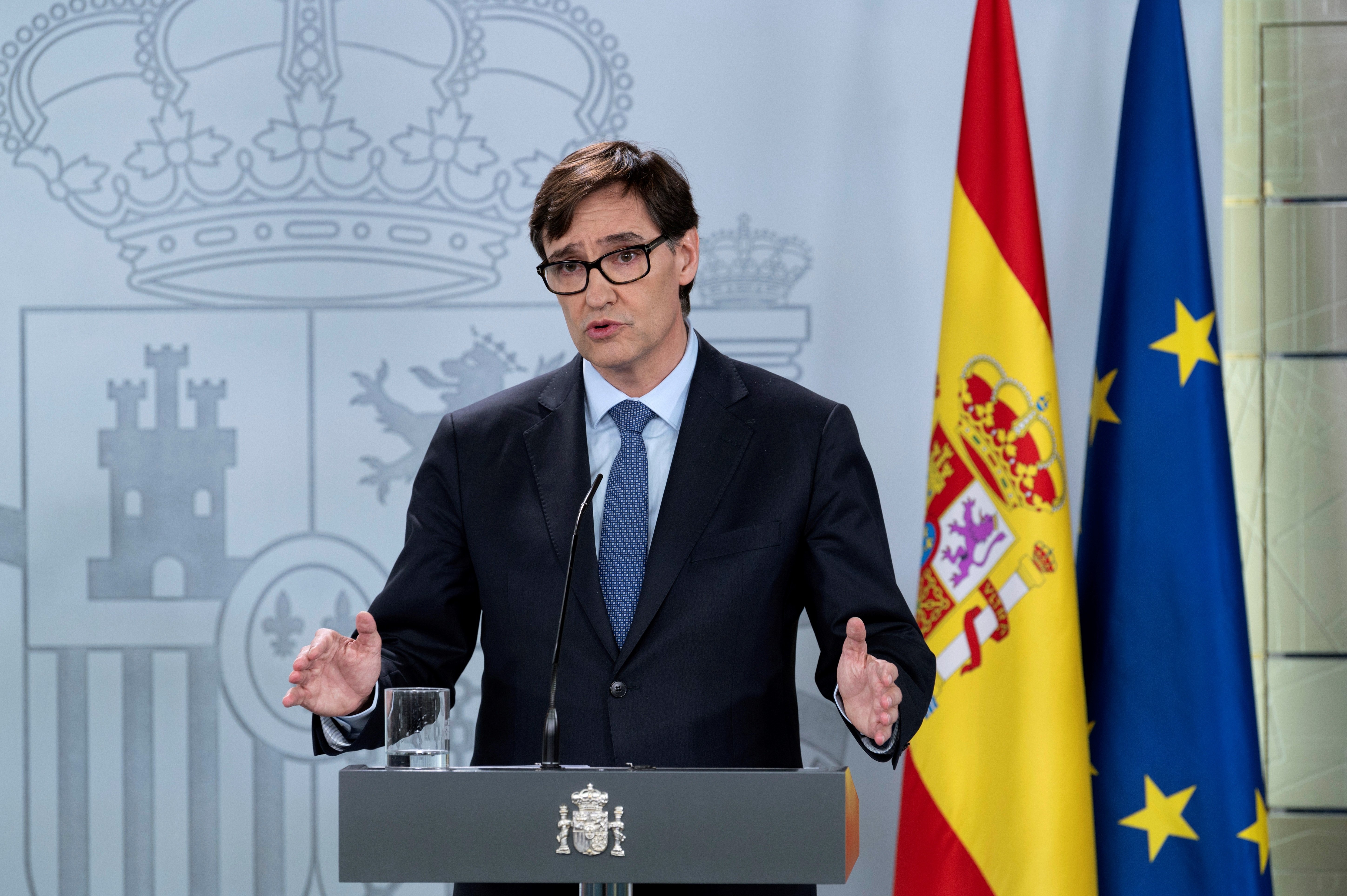The trends in Spain's coronavirus statistics have strengthened the optimism of Salvador Illa. After Spain had registered the lowest numbers of new Covid-19 infections in 23 days and another fall in the daily death toll, the health minister declared: "We have reached the peak." This week, he added, it was time to "bend the curve." All this on the same day as some major non-essential sectors resume activity across the Spanish state. However, the Socialist politician stressed that Spain "continues to be in a phase of confinement."
Speaking at the government's press conference this Monday at midday, minister Illa said that, with the data in hand, it could now be "confirmed that we have passed the first stage of the epidemic, which was to reach the peak". In that regard, he asserted that "the aim of this week is to consolidate the second phase, that is, to bend the curve".
However, given the return to normal work activity this Easter Monday of some non-essential sectors, Salvador Illa wanted to make it clear that "we are still in lockdown", and that "we have not started any de-escalation process, nor have any restrictions on people's mobility been lifted". He said that reactivation is only in a "very limited number of sectors". Authorization, he emphasized, is still essential for travel, to go to the workplace when it is not possible to work remotely, to purchase essential products or for reasons of force majeure.
The minister conveyed "three priorities and one recommendation" to those returning to work. Priorities: maintaining an interpersonal distance of not less than one metre, "frequent" personal hygiene measures, as well as hygiene measures in public and private spaces. The recommendation: when the priorities can't be met, use the masks whose mass distribution began this Monday in public transport across the Spanish state.
The health minister did not want to go into further detail on lockdown de-escalation. "I am not in a position to anticipate any dates at this time," he said, affirming that everything will be based on scientific evidence. The same goes for the possibility of allowing children to go outside - an option which has not been permitted in Spain for a month, except for a limited number of necessary journeys. When enacted, it will be carried out "with prudence and caution".
Illa admitted that the option of handling the lifting of lockdown measures differently in different parts of Spanish territory is on the table, but he would not be drawn into whether it would finally be applied. The minister, who was to hold a video conference later on Monday with the political leaders responsible for Spain's regionally-devolved health system, said that the Sánchez government wants to work "by consensus" with the autonomous community governments.
The "spirit" of the Moncloa Pacts
Once again this Monday, the Spanish coalition government repeated its call for a new version of the Spanish state's post-Franco "Moncloa Pacts". This time it was interior minister Fernando Grande-Marlaska who made the pitch, asserting that, according to survey results, Spanish society wanted a "unanimous agreement for social and economic reconstruction" after the pandemic. "Most of the country is expecting this of us," he said, addressing the political opposition. He agreed that "the Spain of 2020 is not the Spain of the Moncloa Pacts", but called on people to be inspired by the "spirit" of the 1977 pacts.

